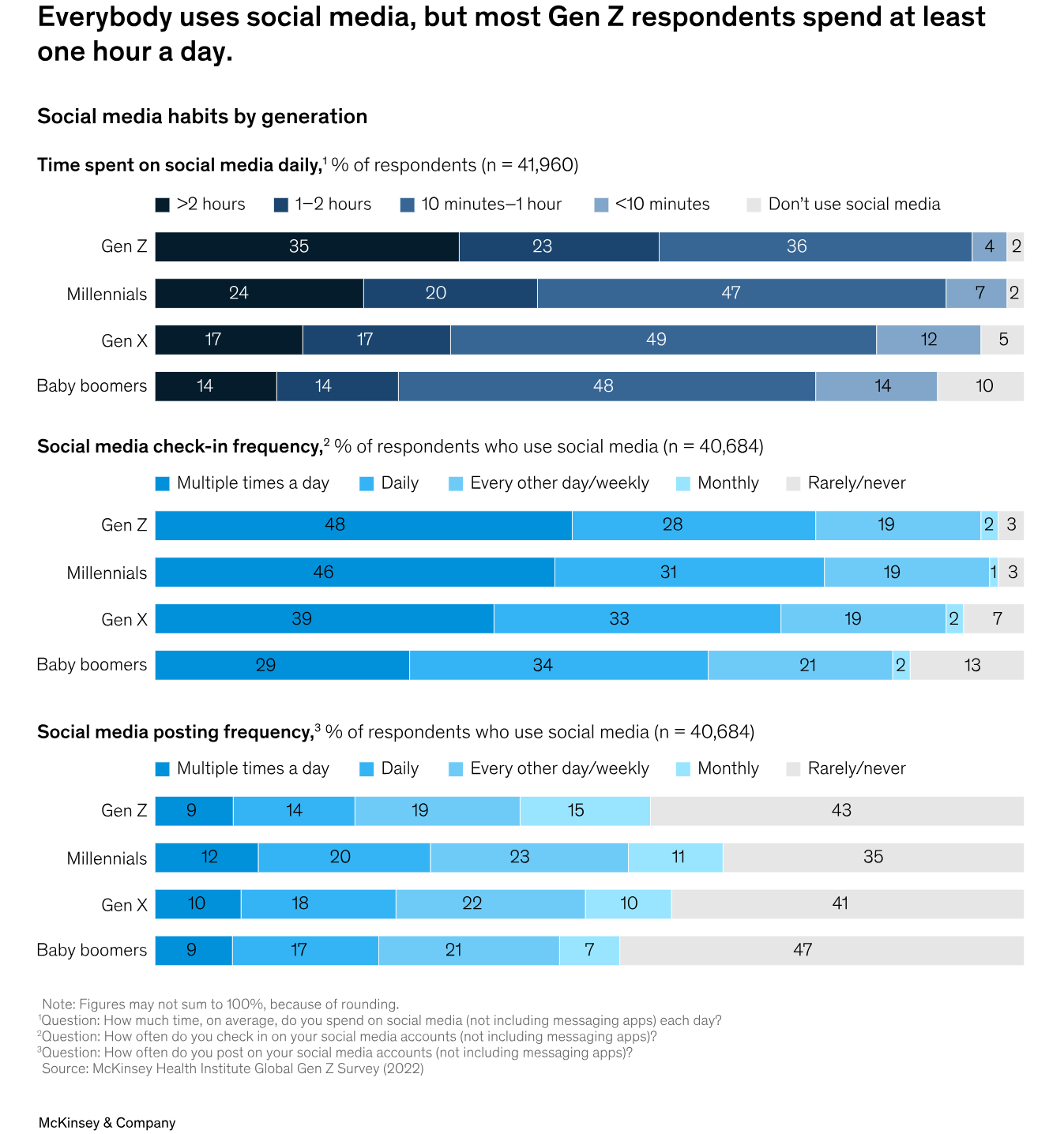“You are going to fire me at the next weekly meeting, aren’t you?” A teammate anxiously asked me during a recent one-on-one session.
I replied, “Excuse me?” as if I hadn’t heard the question.
“You will fire me; I’m 100% sure,” my coworker responded.
I thought to myself… this person is doing a decent job and I had no such intent. Upon further reflection, my younger colleague seemingly struggled with anxiety and impostor syndrome. Personal troubles had affected their self-image and mood at work.
Our one-on-one session made me consider how millennials and Gen Zers dominate today’s workforce – and research suggests “Gen Z is the most anxious generation ever.”
I have a few thoughts as to why that might be the case.
Generations brought up in the era of the Internet cannot imagine their lives without a mobile device in their hands and appear to be the most vulnerable when it comes to communicating with confidence.
“Younger generations tend to engage with social media regularly, in both active and passive ways,” according to McKinsey Health Institute. “Almost half of both millennial and Gen Z respondents check social media multiple times a day. Over one-third of Gen Z respondents say they spend more than two hours each day on social media sites; however, millennials are the most active social media users, with 32 percent stating they post either daily or multiple times a day.”

The relationship between social media and mental health is nuanced. “Negative effects seem to be greatest for younger generations, with particularly pronounced impacts for Gen Zers who spend more than two hours a day on social media and Gen Zers with poor mental health.”
Still, social media does not equal real-life communication. There is a whole world out there — beyond swiping, posting, and video games. A real world where Gen Zers are not ready to interact with other people.
Consequently, it’s tough for younger generations to navigate critical observations or disagreements — they take it too personally. As a result, in the workplace, we are working hard to manage a workforce of overthinkers and over-worriers.
Managing a workforce of anxious overthinkers
So, how do you manage team members who are increasingly vulnerable to self-doubt? Here are some techniques I frequently use to put colleagues at ease and foster stronger communication.
Talk about processes, not only misses and achievements.
Highlight the value their role and duties bring to the company. The main challenge for you as a manager is to create a stable and safe environment that will help your over-worriers not to fall apart while doing their everyday tasks. Remind the team that their work is vital, even if they don’t give you significant news every single day or week.
Be empathetic.
Empathy is one of the things differentiating a boss from a leader. We are not robots — we are social animals seeking our own tribe and a like-minded community. Mistakes are part of the process. Someone who doesn’t make any mistakes is barely doing anything.
Your team members need to understand that you are also human, and they can be open with you. At the end of the day, at different periods of our lives, many of us fight the same demons. Don’t be afraid to share your experience of ups and downs. Focus on lessons you’ve learned from these situations or emotions and encourage your colleagues to do the same.
Help colleagues identify a greater purpose.
Gen Z is indeed the most educated and mental health-aware generation we’ve ever had in the world’s history until now. But they have had to adapt to fast-changing reality more than any other generation. When I was at school, my father told me that statistically, every generation faces one economic crisis in their lifetime.
Now look at what we’ve seen starting from the 2000s: the dot-com bubble, the global financial crisis from mid 2007 to early 2009, a public health emergency declaration, and for some even war. The younger generation is desperate to find ways to adapt in uncertain times.
Hopefully, they will have enough resources to get therapy and qualified help when needed. But until then — help them fight self-doubt and find at least a slim reason to wake up every morning and fight off anxiety. Even if the purpose is just sticking to a work schedule, tasks, and deadlines.
Iryna Chuhai is the Chief Marketing Officer at WePlay Studios, a content-driven production company that blends gaming, technology, and storytelling to create unparalleled viewer experiences. The company produces creative solutions in broadcasting, augmented reality, visual effects, interactive experiences, etc. Based on her extensive work experience in esports and gaming, today Iryna is responsible for the marketing strategy for WePlay Studios’ development, launching campaigns to promote the studio’s products, increasing awareness of the business in the market, as well as developing creative integrations for partners.
© YFS Magazine. All Rights Reserved. Copying prohibited. All material is protected by U.S. and international copyright laws. Unauthorized reproduction or distribution of this material is prohibited. Sharing of this material under Attribution-NonCommercial-NoDerivatives 4.0 International terms, listed here, is permitted.














